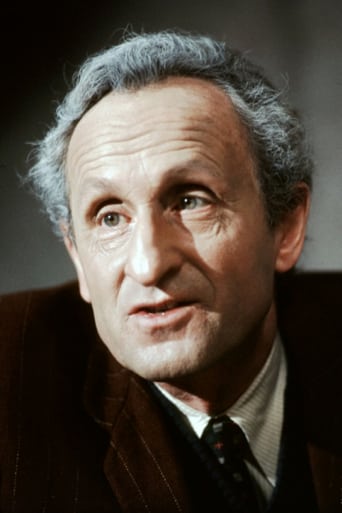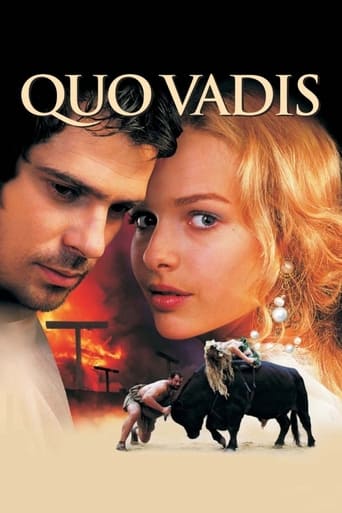
Quo Vadis
April. 12,2002Ancient Rome, during the time of Emperor Nero. Vinicius, a young patrician, falls in love with the beautiful Lygia, the daughter of a Barbarian commander who was killed in battle, and wants her for his concubine. For Lygia, a Christian, being a pagan's concubine is a severe sin and disgrace. However, when Vinicius is wounded, Lygia cares for him, and starts to reciprocate his feelings. Vinicius, in return, becomes interested in Christian learning and asks Apostle Peter to teach him. In the meantime, Emperor Nero accuses Christians of having started a great fire in Rome. He encourages the imprisonment, torture and murder of his Christian subjects.
Similar titles


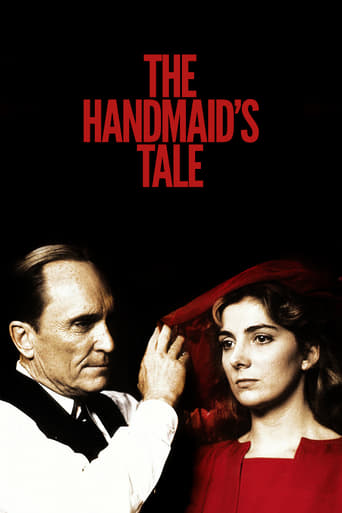

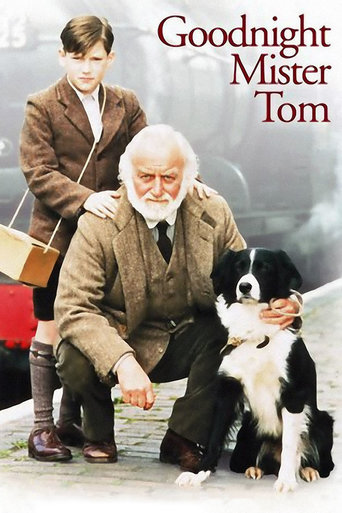
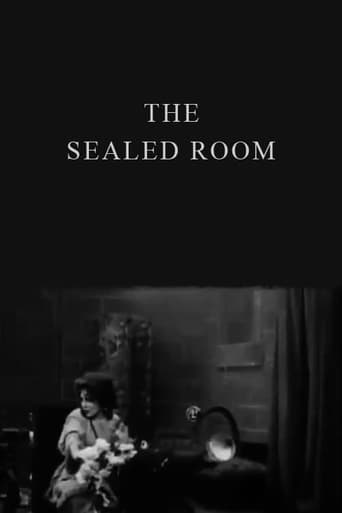
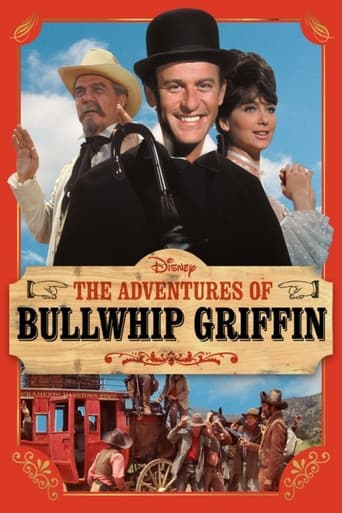


Reviews
The Worst Film Ever
I cannot think of one single thing that I would change about this film. The acting is incomparable, the directing deft, and the writing poignantly brilliant.
Good films always raise compelling questions, whether the format is fiction or documentary fact.
The movie's neither hopeful in contrived ways, nor hopeless in different contrived ways. Somehow it manages to be wonderful
MGM Roman epic QUO VADIS? (1951) has remained one of the top movies among epic buffs. However, its popularity is not so much raised by its source novel but rather by its grandeur of colossal spectacle and magnificent performances. Therefore, after more than 50 years, the movie is still highly entertaining. But a thought may arise...the Noble Prize winning novel QUO VADIS? is not only a historical account of the Rome in Nero's cruel reign but, foremost, a truly insightful, human and thought provoking novel by a great Polish novelist Henryk Sienkiewicz, the novel that masterfully develops human struggles within the corrupted world ruled by an artist, a cynic, a debaucher, an arsonist, a "beast." That thought absorbed the late director, a Pole Jerzy Kawalerowicz, who, in 2000, took up a task to adapt QUO VADIS? for the screen again. As I have seen both the movie and the TV series, my comment will apply to both of them and will hopefully result in a detailed analysis.I would like to analyze this movie in two separate aspects: first, its depiction of historical period, its recreation of the first century Rome (epic features including wardrobe, sets, etc) and, second, its faithfulness to the novel.Kawalerowicz's vision of Rome turns out to be much weaker than LeRoy's in 1951 film. It is short of that lavishness, scenes of crowds, magnificent wardrobe and that tension of splendor. The Roman Empire appears to be "closed up" and laconic. Consider, for instance, the burning of Rome which is condensed, hardly shows the event realistically being a glimpse on the seemingly small group of people in panic. Nero does not sing playing his harp while viewing the burning city from his balcony but he sings on an aqueduct in the middle of a sunny day. The palace occurs to be deprived of that grandiosity we found at LeRoy's. These flaws go in pairs with some technical weaknesses. Let me mention, for instance, the famous bullfight where Lygia is tied naked to the bull but Ursus appears to keep control over the animal from the very beginning. The bull barely moves and people's reactions are fake. Therefore, the movie faced strong criticism and, indeed, if we consider QUO VADIS? in terms of its recreation of Rome only, it is a flawed epic.However... The movie is a very faithful adaptation of the novel and catches the gist of what Sienkiewicz wanted to convey. First, this has to do with the characters. The director develops Chilo Chilonides (Jerzy Trela) the character that was almost skipped in the American version. The story of this man who is once ironically called "the king of the state of wickedness" is so psychological that the entire movie about him would suffice for a meaningful story. His character indeed makes one find forgiveness meaningful and conscience universal. Chilo is beautifully portrayed by Jerzy Trela in a magnificent performance. In Nero's court, we have an accurate insight into "Nero's evil spirit" Tigellinus (Krzysztof Majchrzak) who prompts most crimes of the mad emperor. The depiction of Christian characters is also very accurate. What strikes us among Christians is the living example they give to the pagans and thanks to that example, they convert many people. In this respect, I would like to mention the arena scene - this movie really supplies the viewer with the gore of it, the camera goes in between the martyrs and you as an observer are really affected by the depiction. What touched me most is the baby consumed by a lion while the whole crowd is being mute to this tragedy as if it were totally unnoticed. The movie also depicts the arbiter of elegance, Petronius (Boguslaw Linda), as a witness of dying Christians (in accordance with the novel). That is what I like most about 2001 QUO VADIS? It makes use of the themes developed in the novel.As far as the performances are concerned, there is a great acting and a poor acting. The leading cast Pawel Delag as Marcus Vinicius and Malgorzata Mielcarz as Lygia are good though Delag sometimes leaves much to be desired. He, unlike Robert Taylor, does not clearly portray his character's glorious way from the triumph of conquest to the triumph of spirit. He appears to be very sympathetic from the beginning, no proud Roman leader at first and a devoted believer later. Michal Bajor is not very good as Nero but it is not the looks that make his performance flawed but his talk. I liked Boguslaw Linda's portrayal of Petronius and Krzysztof Majchrzak's Tigellinus. Except for the aforementioned Trela, Franciszek Pieczka does a fine job as Apostle Peter, a calm hearted fisherman of Galilee who once left his barge and gave his total self to the Lord.Finally, I would like to add one more feature of the film: its ability to talk to viewers' hearts. Unlike many epics that draw our attention rather to the spectacle, this movie gives us an insight into particular moment of the human history at the dawn of the new faith. It seems to ask a viewer a question of importance: What is it to be a person? Is it possible that one human feasts and laughs watching lustfully the other one dying in horrific pain? Is the world really mute to the moving cry of a little baby consumed by the beast of hatred, political correctness or indifference? "Quo Vadis Domine?" "Whither Goest Thou, Lord?" Peter asked Christ on the way. He heard the answer "To Rome, to be crucified the second time" The memorable question that appears at the end of the movie seems to be the question of many people of our times: "Where are you going, Lord?" people who subtly predict the answer in their hearts: "To the innocent who constantly suffer most"
Since I am both Christian and Polish (although with much of the Russian blood), I deeply enjoyed this excellent film. But, you really don't have to be a Pole or a believer to like this work of art. Mr. Kawalerowicz did a marvelous job shooting another masterpiece of Henryk Sienkiewicz. The performance of Boguslaw Linda is as usual impeccable, and the scenes of the Christian martyrdom are simply blood-freezing. You immediately feel deep sorrow when seeing those bloody killings. The bright costumes, excellent actors' work and great plot make this film a must see for all who love to learn more about the history of both Roman Empire and Early Church.
Nobel Prize winner Henryk Sienkiewicz is Poland's most revered author; this 2001 adaptation of his world-famous novel is the most expensive movie in Polish history. It's lavish, to be sure, but its real impact comes from the power of its storytelling and the timelessness of its themes.Sienkiewicz was a devout Catholic, and writer/director Jerzy Kawalerowicz's intent is undoubtedly pious one viewer called QUO VADIS a cross between a Catholic mass and I, CLAUDIUS but to me, the Christian point of view neither diminishes nor enhances the basic integrity of the story, which is about human beings caught in the maelstrom of Nero's reign. Some, like the pagan Petronius, tread the razor's edge, as must all artists and intellectuals who live under an autocrat (Eisenstein under Stalin comes to mind). Others, like Vinicius and his beloved Lygia, happen to be members of the particular cult which Nero chooses to scapegoat after a fire ravages Rome and destabilizes his regime. This is a tragedy repeated throughout history: when a catastrophe strikes, like the burning of Rome or the attack on the World Trade Center the scapegoating impulse of the populace will be exploited by evil men to bring about the death and suffering of innocent people. Whether Christians are the victims or the perpetrators of such scapegoating, it is the duty of history and of art to record the suffering of the innocent which QUO VADIS achieves, hauntingly and brilliantly.Michal Bajor as Nero surpasses all other screen incarnations of the deranged emperor. Boguslaw Linda plays Petronius, the shrewd survivor, with the multi-layered subtlety the role demands. The other characters are equally well cast, from Judo world champion Rafal Kubacki's towering Ursus to Agnieszka Wagner's blood-chilling Poppaea. Special kudos to Jerzy Trela in the tragicomic role of Chilo Chilonides. The musical score by Oscar-winner Jan Kaczmarek is also memorable.Although QUO VADIS was edited for theatrical release, I saw the original 6-part TV series that's available on DVD from MGE with English subtitles. The pace never flags and the sprawling novel is well suited to serial format.
Jerzy Kawalerowicz's Quo Vadis was both a compelling and evocative production. The story, based on love amidst persecution is a timeless story that was portrayed effectively thanks to the fantastic directing by Mr Kawalerowicz, the breathtaking special effects and the exceptional acting by some of Poland great actors. Although the film was 3 hours long, at no time was I bored or even afterwards, the film left me thinking about those times and the various themes conveyed in the film. This film is truely an epic and deserves to be credited as such.
Top Streaming Movies


















